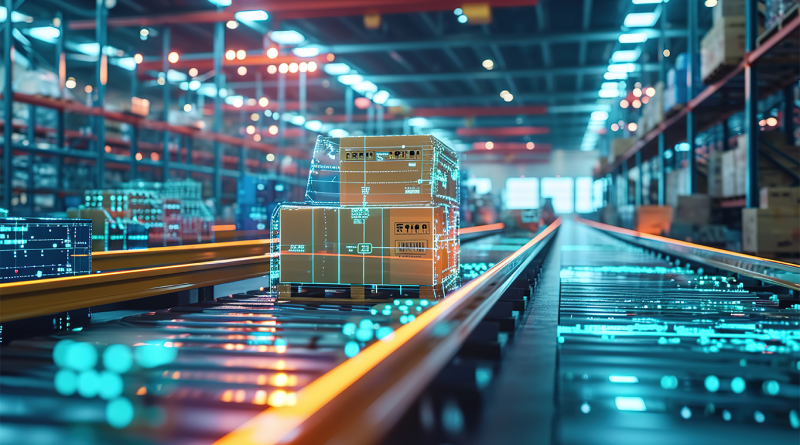How Altana AI’s Unicorn Status is Redefining Supply Chain Transparency
Altana AI, a groundbreaking platform that leverages artificial intelligence to enhance supply chain data, recently achieved unicorn status, reaching a valuation of $1 billion. This milestone highlights the growing importance of AI in optimizing supply chain management, especially as global trade networks become increasingly complex. In a world where transparency and resilience in supply chains are more crucial than ever, Altana AI stands out by offering unparalleled insights and data-driven solutions.
The COVID-19 pandemic exposed vulnerabilities in global supply chains, driving the need for more robust and adaptable systems. Companies are now turning to AI-driven platforms like Altana AI to navigate these challenges, ensuring that they remain competitive in an unpredictable market.
The Rise of Altana AI in the Supply Chain Industry
Founded in 2018, Altana AI was created with a vision to bring unprecedented transparency and efficiency to global trade. The company’s leadership, including co-founders Evan Smith, Peter Swartz, and Raphael Tehranian, recognized the pressing need for a platform that could aggregate and analyze vast amounts of data across complex networks. This vision quickly resonated with investors, culminating in Altana’s recent $1 billion valuation, achieved through its Series B funding round led by GV (formerly Google Ventures) and participation from existing investors like Alphabet’s CapitalG.
Altana AI’s journey to unicorn status is marked by key milestones, including strategic partnerships with industry giants like UPS and Maersk, successful funding rounds, and the development of cutting-edge technology. The platform’s ability to provide granular insights into supply chain operations has attracted a diverse range of clients, from Fortune 500 companies to small and medium-sized enterprises (SMEs). These organizations are now better equipped to manage risks, ensure compliance, and maintain supply chain continuity, all thanks to Altana AI’s innovative approach.
Altana AI’s Platform and Technology
At the heart of Altana AI’s success is its powerful technology platform, which utilizes machine learning and advanced data analytics to deliver actionable insights. The platform integrates seamlessly with existing supply chain management systems, offering a comprehensive view of operations, from raw material sourcing to final product delivery.
One of the key features of Altana AI’s platform is its ability to map and analyze complex supply chain networks. This capability allows companies to identify potential risks and inefficiencies, such as bottlenecks, supplier dependencies, and geopolitical risks, before they become critical issues. Additionally, the platform’s AI-driven insights enable companies to make informed decisions in real-time, optimizing their supply chain strategies and enhancing overall resilience.
For example, a leading electronics manufacturer partnered with Altana AI to improve its supply chain transparency. By using Altana’s platform, the company was able to identify several previously unknown third-tier suppliers, some of which were located in regions prone to political instability. With this information, the manufacturer adjusted its sourcing strategy, ensuring a more stable and reliable supply chain.
Addressing Challenges in Global Trade with AI
Global trade is fraught with challenges, ranging from regulatory compliance to environmental sustainability. Traditional supply chain management systems often struggle to keep up with these demands, leading to increased risks and inefficiencies. Altana AI addresses these challenges head-on by providing a platform that not only enhances visibility but also drives compliance and sustainability across the entire supply chain.
One of the most significant challenges in global trade is managing the vast amount of data generated by supply chain activities. Altana AI’s platform excels in this area by aggregating and analyzing data from multiple sources, including suppliers, logistics providers, and regulatory agencies. This data is then used to generate insights that help companies stay compliant with international trade laws, reduce their carbon footprint, and improve overall supply chain efficiency.
In a recent case, a global apparel company used Altana AI’s platform to ensure compliance with new environmental regulations. The platform identified areas where the company’s supply chain was not meeting sustainability standards, allowing them to take corrective action. As a result, the company not only avoided potential fines but also enhanced its reputation as a leader in sustainable practices.
As global trade continues to evolve, the role of AI in supply chain management is set to become even more significant. Altana AI is well-positioned to lead this transformation, with its platform serving as a blueprint for the future of supply chain management. By leveraging AI, companies can not only navigate the complexities of global trade but also turn these challenges into opportunities for growth and innovation.
Looking ahead, Altana AI plans to expand its platform’s capabilities, incorporating new technologies such as blockchain and the Internet of Things (IoT) to further enhance supply chain transparency and efficiency. The company is also exploring opportunities to collaborate with governments and non-governmental organizations (NGOs) to address global challenges such as human trafficking and environmental degradation.
However, with great power comes great responsibility. As Altana AI continues to scale, it will need to navigate potential risks, including data privacy concerns and the ethical implications of AI-driven decision-making. By staying true to its mission of enhancing global trade through transparency and innovation, Altana AI is poised to play a pivotal role in shaping the future of supply chain management.
Sources:
